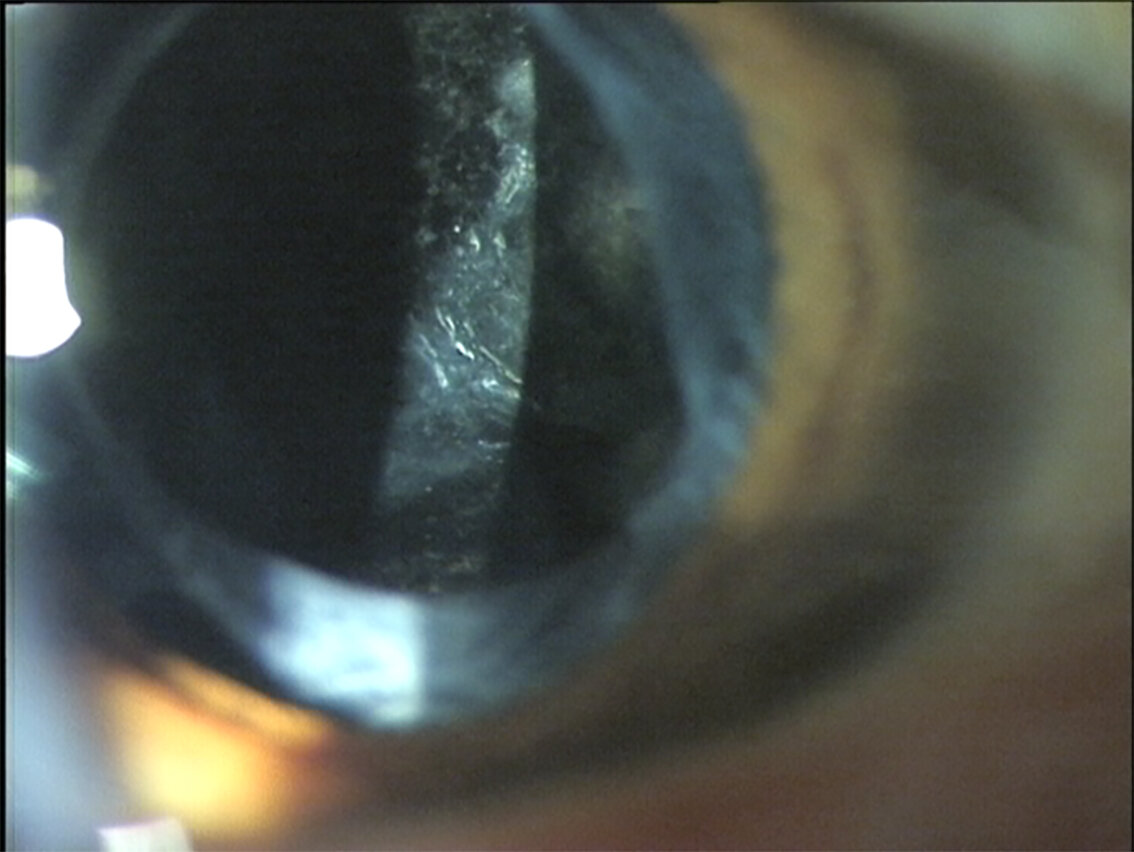Posterior Capsular Opacification (PCO)
This photo demonstrates posterior capsular opacification. The light is focused on the capsule behind the lens implant. This normally clear capsule has become opaque.
What is Posterior Capsular Opacification?
Posterior capsular opacification (or PCO) is a condition that occurs after routine uncomplicated cataract surgery where the cataract is replaced with a lens implant. This implant is placed within a transparent capsule or ‘bag’ that holds it in the correct position. In PCO, this bag thickens and loses its transparency.
What are the symptoms of posterior capsular opacification?
You may notice a mistiness, blurring or glare as the capsule thickens. This is similar to the symptoms caused by cataract. Often people describe it as the cataract ‘growing back’.
How do you treat posterior capsular opacification?
This can be treated with a laser capsulotomy where laser is used to create a hole in the thickened capsule. This holes allows light to be focused clearly through it and improves your vision.
What does the treatment involve?
Laser capsulotomy is an outpatient procedure. The setup is very similar to the examination at your consultation. The pupil in your affected eye will be dilated and anaesthetic drops will be used to numb the surface of your eye. This allows a temporary lens to be placed against your eye that helps to keep your eye still. There is no special aftercare required.
Where will the treatment take place?
I perform this treatment at the Nuffield Health Bristol Hospital.

